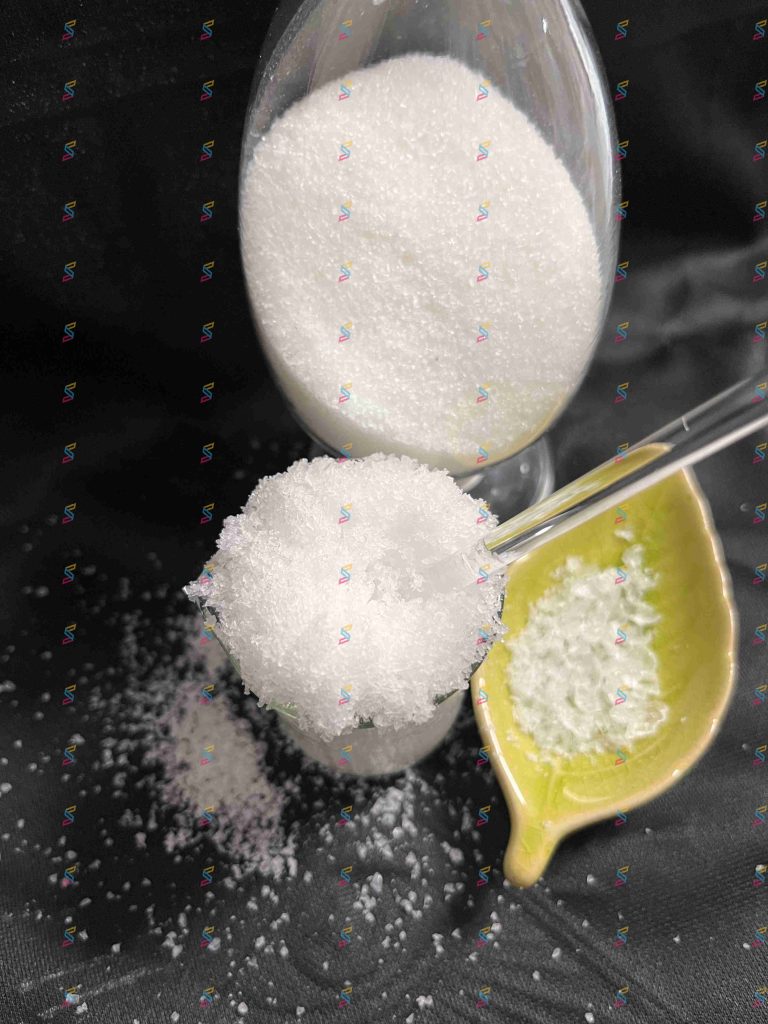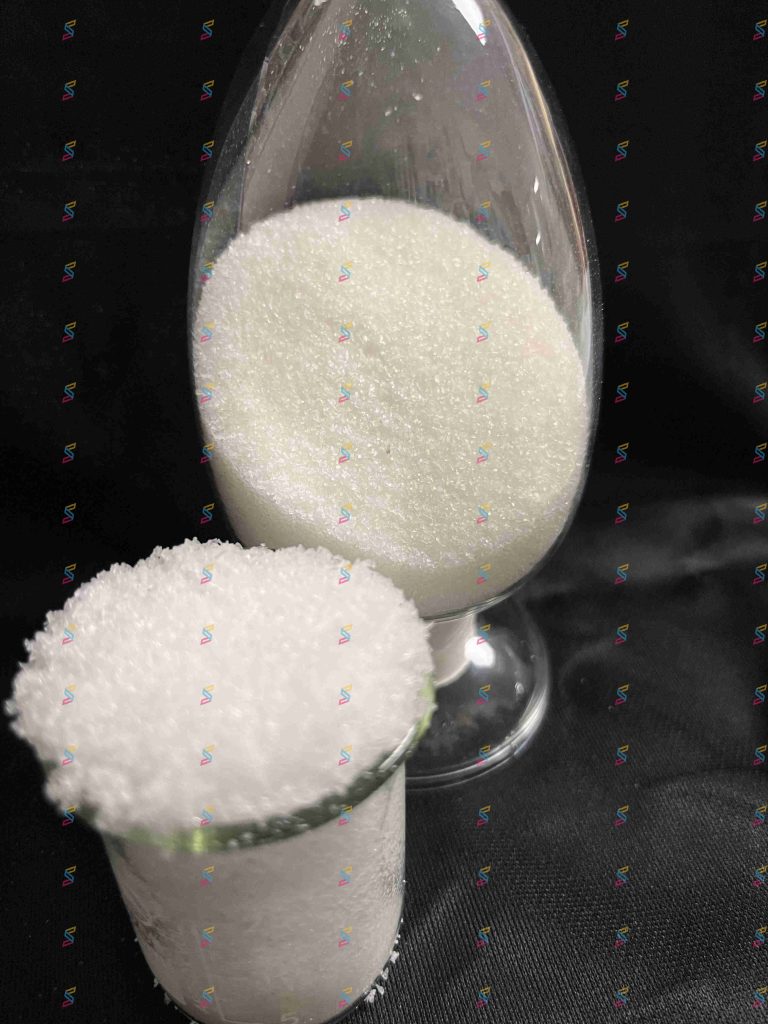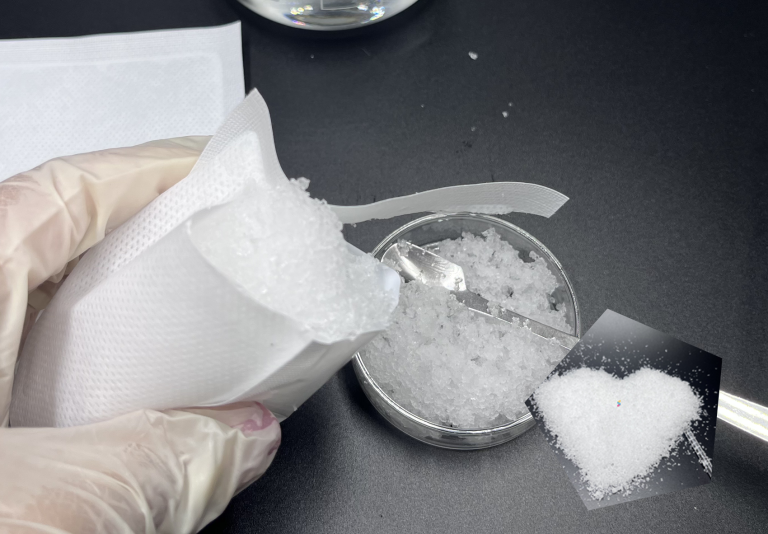
MAIN PRODUCTS
Superabsorbent polymer, often known as SAP or superabsorbent material (SAM), High water-absorbent resin finds diverse applications in both consumer and industrial sectors due to its remarkable ability to absorb water and aqueous solutions, absorbing up to 500 times its weight in liquid. Originally developed in the 1960s by the US Department of Agriculture to enhance water conservation in soil, the initial polymer was starch-based, but modern SAP technology shifted to hydrocarbon-derived polymers, High molecular weight water-absorbent material specifically crosslinked acrylic polymers neutralized with sodium.
Superabsorbent polymers have become a staple in the hygiene industry, with around 3 million tons produced annually. Their applications include Hydrogel, Feminine hygiene pads, Fake snow, Wastewater treatment SAP, Agricultural application SAP, Baby and adult diapers, and various incontinence products.
Chemistry of Superabsorbent Polymers: Superabsorbent polymers used in laminates and airlaids are typically formed through the reaction of acrylic acid monomer with sodium hydroxide and a cross-linking agent, resulting in polyacrylic acid sodium salt. Gel Polymerization is the most common technique, where components are sprayed onto a moving belt in the presence of UV light, causing crosslinking. Suspension Polymerization and Solution Polymerization are alternative methods.
Application of Superabsorbent Polymers: When these polymers come in contact with aqueous liquids, such as urine or blood, they absorb water through osmosis. This makes them ideal for personal hygiene and incontinence products, as they can retain large amounts of liquid even under pressure. However, when in contact with liquids containing high salt levels, absorption capacity decreases.
Important Characteristics of Superabsorbent Polymers:
- Particle size
- Free swell absorption capacity
- Absorption capacity under load
- Water retention properties
- Rate of water absorption
- Polymer permeability
- Gel strength
- Wicking capability
Application of Superabsorbent Polymers
The Gelsap polymer is extensively used in garden management, flower cultivation, urban greening, large-scale agriculture, vegetable planting, etc.
The Gelsap polymer is widely utilized in gel ice packs, cable powder, oil drilling fluids, wastewater treatment, sand-free sandbags, and other industrial products.
Refers to cat litter made from SAP, a common Gelsap Super Absorbent Polymer known for its durability and absorption qualities, providing an effective and eco-friendly solution for pet waste management.
OUR MISSION
Delivering the best customer experience in the markets we serve.
We are committed to our customers – we believe that no other polymer distributor in WORLD can match our level of technical expertise and level of commitment to our customers.
The Time Has Come To Acknowledge That We Have Grown And Developed As A Company, And That Our Product Range Has Significantly Expanded.
Check Out Our Product Offering Below
If You Would Like To Know More About Any Of Our Products Please Contact Us
WHY GELSAP?
R&D TEAM
Technical support
SERVICIO DE FORMULACIÓN
Proporcionar las mejores soluciones según los requisitos del cliente.
EQUIPO R&D
Soporte técnico
FAST SHIPPING
Lead time is within 7 days
Delivery time is usually 7-15 days.
Superabsorbent Polymers (SAPs) FAQ
What are Superabsorbent Polymers (SAPs)?
*Superabsorbent Polymers (SAPs) are materials that can absorb and retain large amounts of liquid relative to their own mass. They are used in various applications including hygiene products, agriculture, medical fields, and cold chain transportation.
How do Superabsorbent Polymers benefit cold chain transportation?
*SAPs help manage temperature fluctuations and control humidity levels, preventing condensation and protecting temperature-sensitive goods such as food and pharmaceuticals during transit.
Can Superabsorbent Polymers help prevent leaks in cold chain packaging?
*Yes, Superabsorbent Polymers can absorb leaks from melted ice or other cooling agents, keeping packages dry and reducing the risk of spoilage or damage.
How do Superabsorbent Polymers help in the transportation of food products?
*Superabsorbent Polymers maintain the freshness of fruits, vegetables, dairy products, and meats by absorbing excess moisture and maintaining stable temperatures during transit from farm to table.
Why are Superabsorbent Polymers important for transporting pharmaceuticals?
*SAPs provide stable conditions for temperature-sensitive medicines, vaccines, and biological samples, ensuring they remain effective and safe during transportation.
How are Superabsorbent Polymers used in agriculture?
*SAPs are used to improve soil moisture retention, reducing the need for frequent irrigation and helping plants survive in dry conditions.
Can Superabsorbent Polymers be customized for different applications?
*Yes, SAPs can be customized in terms of absorption capacity, size, and form to meet the unique needs of different applications and industries.
Contact Us
FIll out the form below and GELSAP will cantact you as soon as possible







